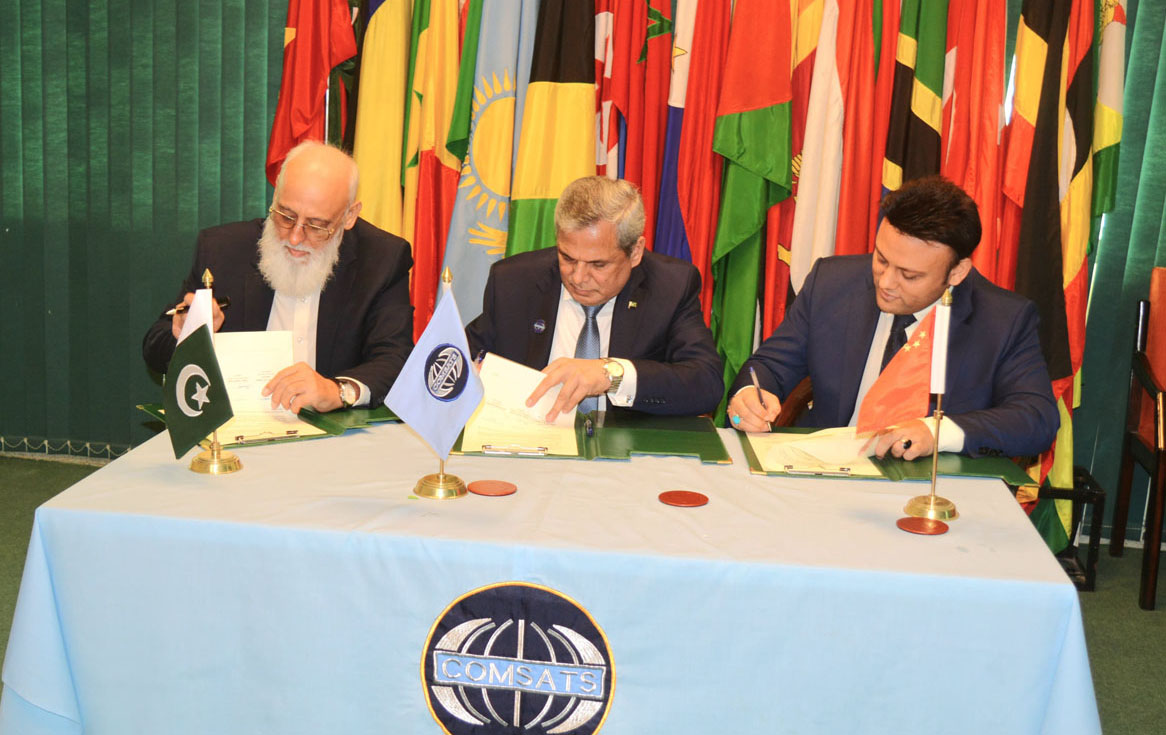16th November 2024. On the sixth day of COP29, COMSATS, in collaboration with Islamic World Educational, Scientific, and Cultural Organization (ICESCO), Food Security and Agriculture Centre of Excellence (FACE) – Fauji Fertilizer Company (FFC), International Center for Agricultural Research in the Dry Areas (ICARDA), Living Indus, and the Islamic Organization for Food Security (IOFS), successfully organized a sideline event titled “Economic Impacts of Climate Change on Agriculture: Predictive Modeling Insights.” The event was held at the ICESCO Pavilion and brought together leading experts, policymakers, and stakeholders to address one of the most pressing challenges of our time—how climate change is reshaping agricultural systems and impacting food security globally.
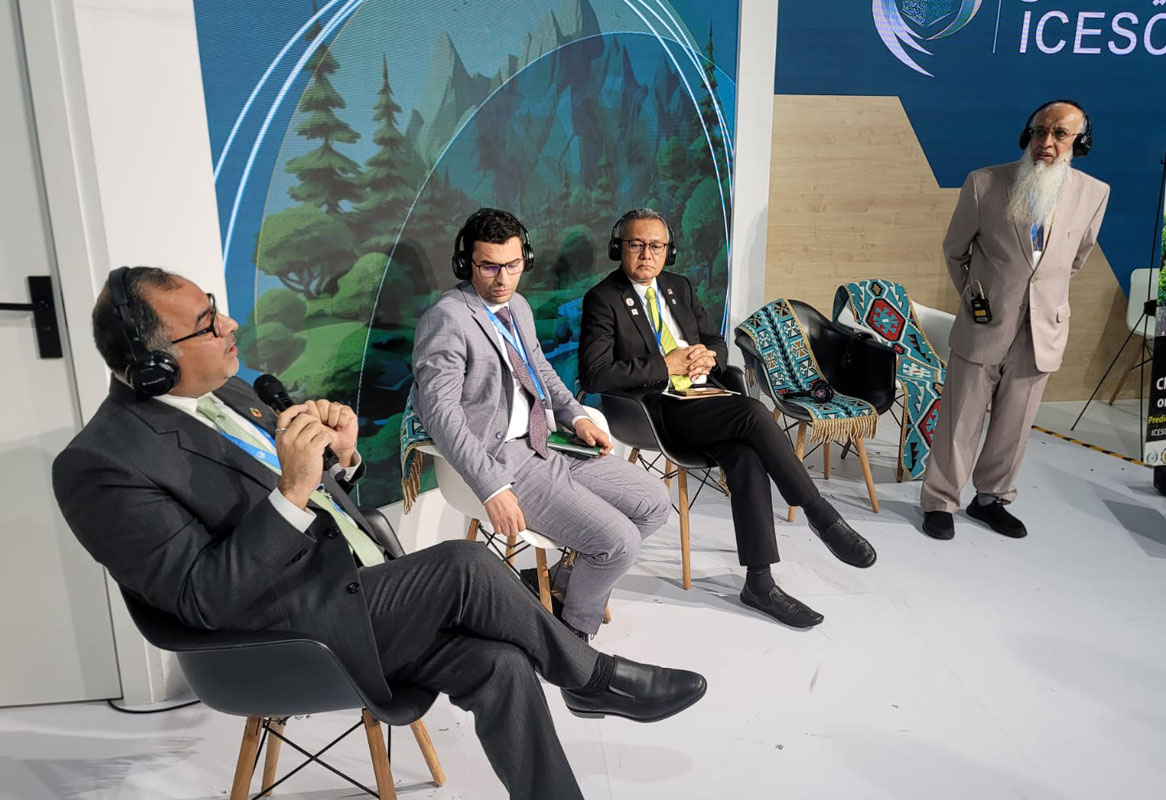
The session, moderated by renowned agriculture and sustainability expert, Dr. Minhaj Khokhar, CEO PK2100, focused on predictive modeling and its role in understanding the economic impacts of climate change on agriculture, while also exploring solutions to enhance the resilience of agricultural systems in the face of unpredictable climatic events.
In his opening remarks, Ambassador Dr. Mohammad Nafees Zakaria, Executive Director of COMSATS, underscored the critical importance of rethinking agricultural strategies in the context of climate change. He noted: “The phenomenon of climate change is not new—it has been observed for centuries. However, its intensity and scale of devastation have increased exponentially in recent years. The Green Revolution addressed the food security challenges of a growing population but came at the cost of soil and land degradation. It is now imperative that we adopt methodologies and technologies that are environmentally friendly and sustainable.”
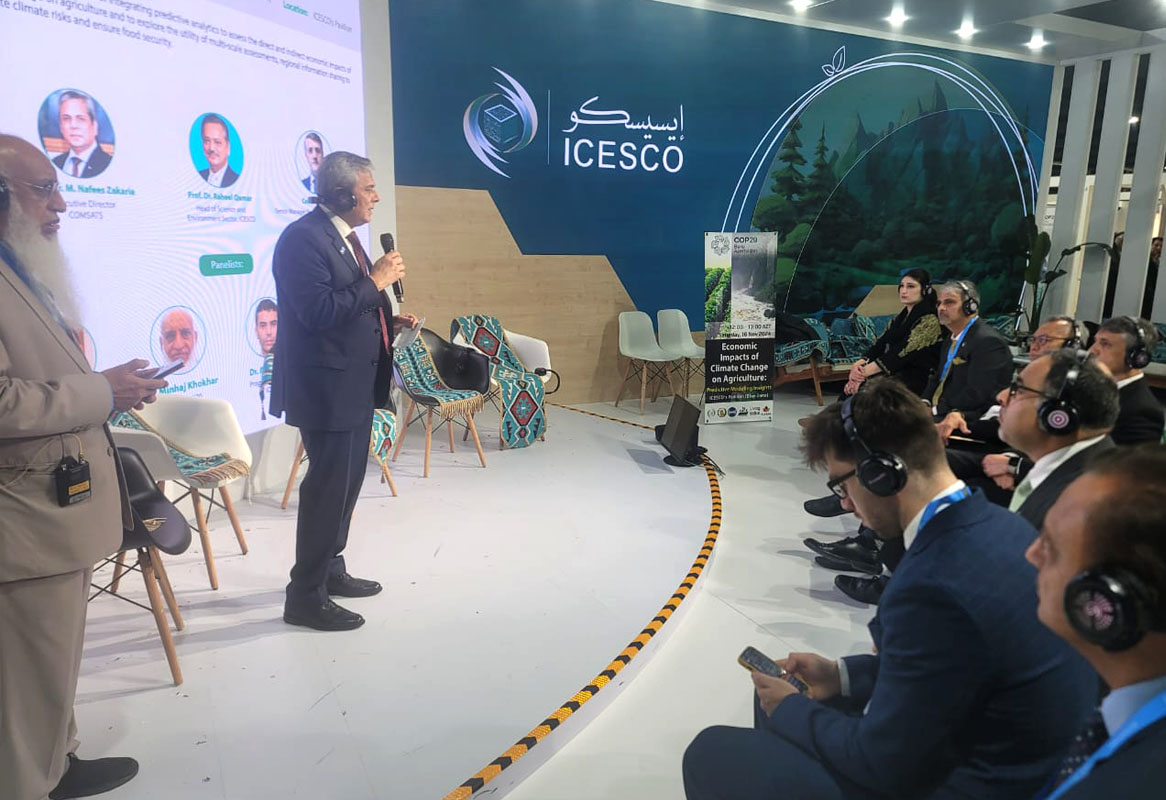
Prof. Raheel Qamar, Head of the Science and Technology Sector at ICESCO, highlighted the unpredictability of extreme weather events and their devastating impact on agriculture. He remarked: “We have seen firsthand how, within a span of just two years, same area in Kenya experienced both severe drought and devastating floods, crippling agricultural productivity. Remote sensing and predictive modeling can identify areas suitable for agricultural growth and productivity. It is unfortunate that developing countries, which contribute the least to climate change, are bearing its worst impacts.”
Col. Salar Malik, Chief Sustainability Officer at Fauji Fertilizer Company Energy (FACE-FFC), shared insights from FFC’s pioneering work in predictive modeling for sustainable agriculture: “At FACE-FFC, we are leveraging predictive models to support farmers by identifying problems such as pest attacks or locust infestations. These tools empower farmers to make informed decisions. As a fertilizer company, we are committed to playing our role in mitigating the economic impacts of climate change on agriculture.”
The panelists responded to critical questions addressing the economic and environmental challenges posed by climate change to agriculture, focusing on strategies to enhance resilience, improve productivity, and ensure food security globally.
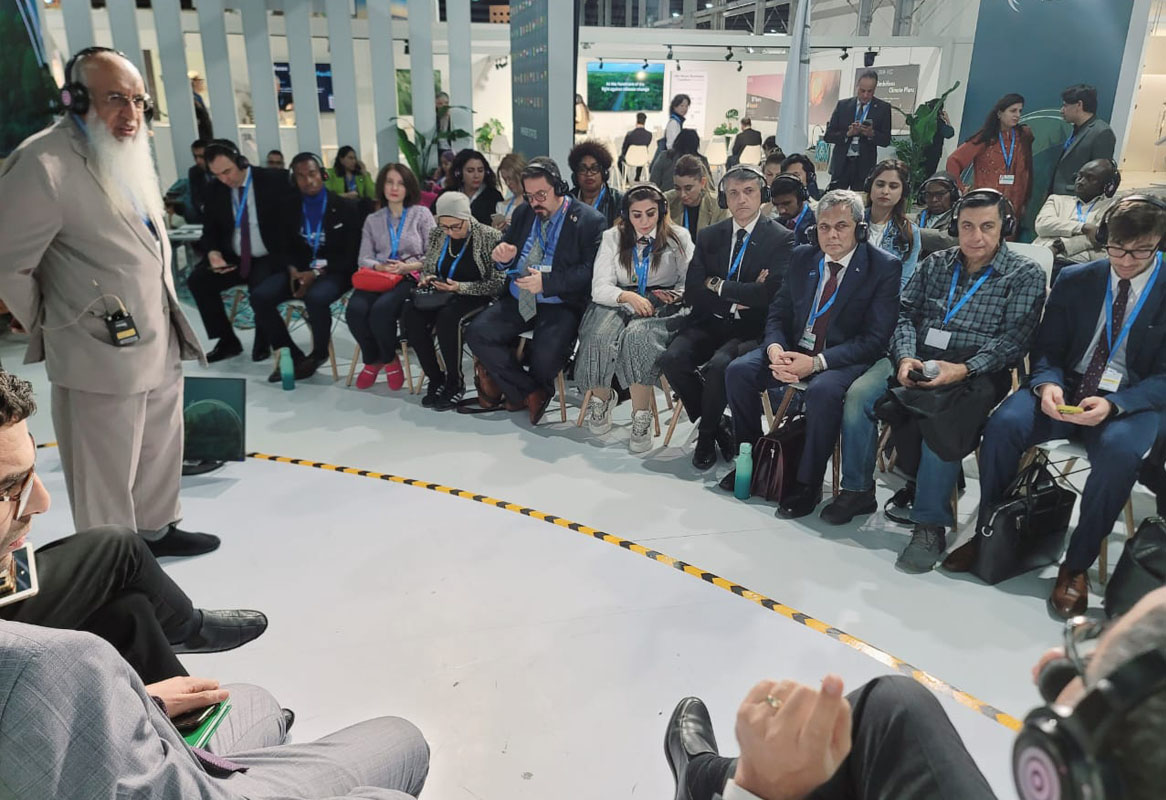
Dr. Nangia Nangia, Director Research Programs (ICARDA) shed light on the vicious cycle between agriculture and climate change, emphasizing the dual role agriculture plays as both a contributor to and victim of climate change. He highlighted the transformative potential of predictive modeling and machine learning technologies to address this dynamic. “Predictive modeling can identify patterns of resource usage, climate variability, and yield fluctuations to guide agricultural practices and policy decisions. By analyzing complex interactions between climate variables and agricultural outputs, these tools can help optimize resource use and mitigate economic losses for farmers. This technology is key to advancing sustainable agricultural systems, especially in regions facing extreme climate variability.”
Addressing barriers to technology adoption in agriculture, YBRS TS. Shamsul Bahar Mohd Nor, Group Chief Executive Officer, Malaysia Green Technology Company (MTGC), pointed out the challenges of the digital divide, high costs, and technological complexity in developing countries. “For predictive modeling and advanced technologies to benefit agriculture in developing nations, accessibility and affordability are paramount. Governments and private sector stakeholders must work together to bridge the digital divide through investments in infrastructure and capacity-building programs. Additionally, strategies like public-private partnerships, subsidized access to technologies, and promoting climate-tech entrepreneurship can help overcome financial and technical barriers”.
Dr. Abdelaziz Hajjaji, Programme Manager (IOFS) emphasized the critical role of intergovernmental organizations in addressing diverse regional challenges and facilitating the adoption of climate-resilient technologies across member states.
“The IOFS plays a pivotal role in fostering collaboration among member states to implement tailored climate-smart agricultural strategies. By sharing best practices, providing technical assistance, and facilitating access to funding for climate-resilient technologies, IOFS helping nations address their unique agricultural challenges while collectively contributing to global food security.”
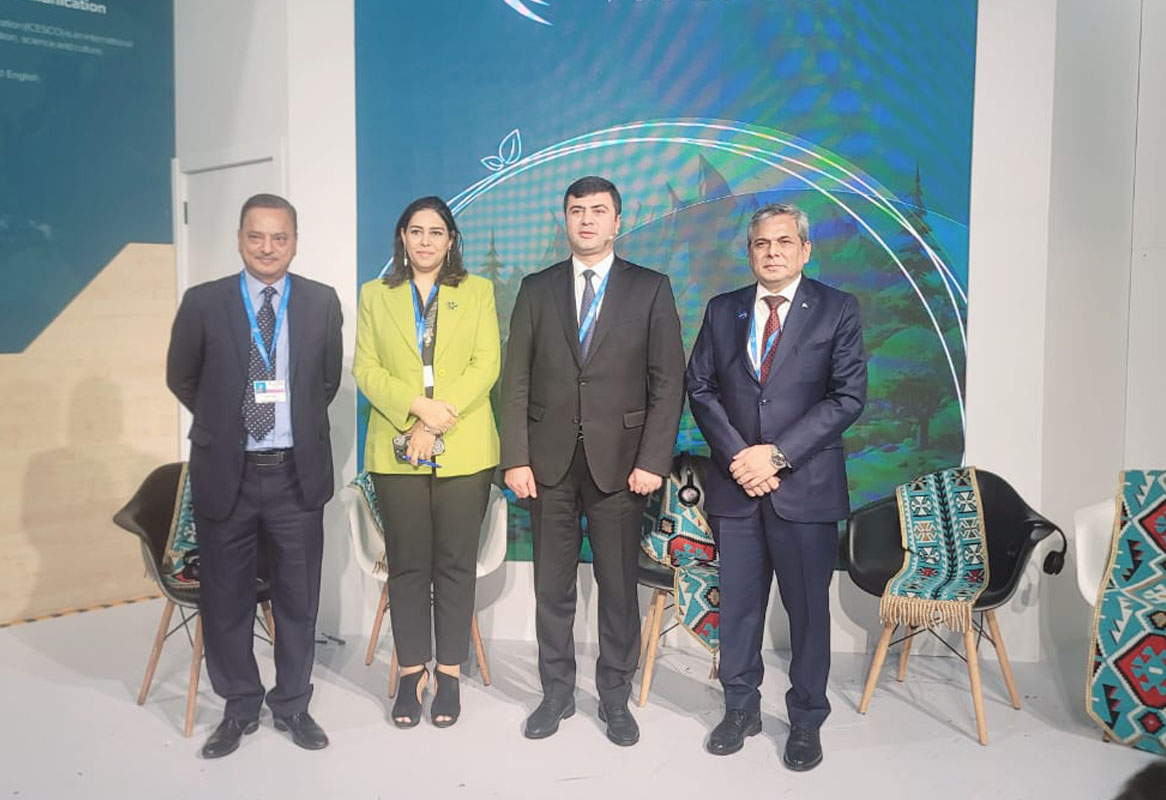
Focusing on the importance of soil health and carbon sequestration, Dr. Khokhar elaborated on how predictive modeling can identify the most effective methods for integrating climate-resilient crops with regenerative agricultural practices.
“Predictive modeling offers insights into optimizing crop selection, rotation, and regenerative practices that improve soil health and enhance carbon sequestration. These integrated practices not only reduce greenhouse gas emissions but also strengthen the economic resilience of agricultural systems by ensuring long-term sustainability of farmland and mitigating risks associated with climate variability.”
The panelists collectively emphasized the urgent need for collaborative efforts between governments, research organizations, and private sectors to integrate advanced technologies into agricultural systems. They highlighted the importance of capacity-building, knowledge-sharing, and funding mechanisms to ensure that predictive modeling and climate-resilient practices reach the farmers who need them most.
The discussion reinforced the message that addressing the economic impacts of climate change on agriculture requires a multi-dimensional approach—leveraging innovation while promoting inclusivity and sustainability in agricultural practices.

